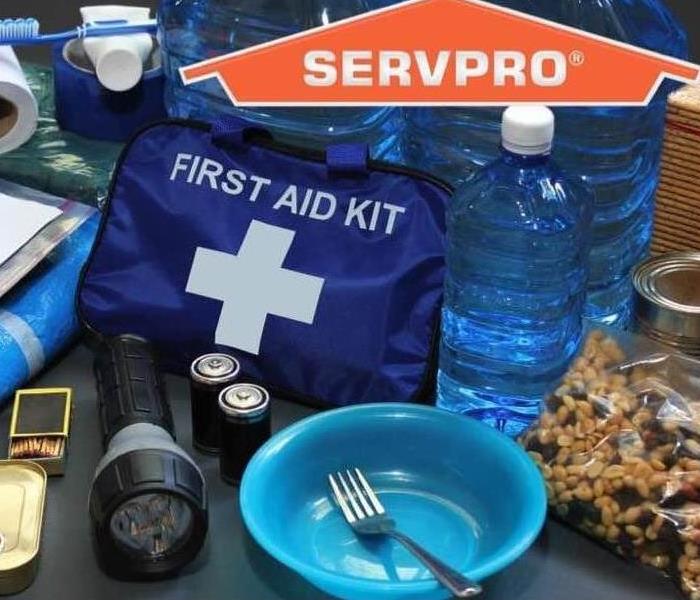National Preparedness Month - Build a Kit
9/23/2021 (Permalink)
In our ongoing blog series highlighting National Preparedness Month, this week's focus will be on building an emergency kit. While your exact needs may be different based on the actual situation, the following is a basic list of supplies that everyone could benefit from having on-hand:
- Water - Have at least one gallon per person for a minimum of 3-days
- Food - Keep at least a 3-day supply of non-perishable food with a manual can opener
- Battery-Powered or Crank Radio - If the power goes out, you'll want to know what is happening around you; FEMA also recommends a NOAA Weather Alert Radio with tone alert
- Flashlight(s) - Don't forget extra batteries!
- First Aid Kit
- Whistle - Use this to signal for help
- Dust Mask - To filter contaminated air
- Plastic Sheeting & Duct Tape - Can be used for a number of tasks, most importantly to shelter-in-place
- Candles & Matches - Be sure to store matches in a waterproof container
- Moist Wipes, Garbage Bags & Ties - For personal sanitation
- Toilet Paper & 5-Gallon Bucket with Lid - For a makeshift toilet (don't forget the lid!)
- Basic Tools - Include a wrench, pliers and hammer (these may be needed to turn off utilities)
- Medications - Don't forget prescription medication, as well as general over-the-counter products like ibuprofen, antacids or anti-diarrhea medication; remember an extra pair of glasses or contacts with solution
These items make up the core products that should be in every emergency kit. Other helpful items that are recommended are:
- Sleeping bags/blankets
- Important documents (such as insurance policies, passports, bank records)
- Infant formula, diapers, bottles, rash cream, etc. (if applicable)
- Pet food and extra water (if applicable)
- Cash or traveler's checks
- Extra clothing and shoes
- Fire extinguisher
- Feminine hygiene supplies (if applicable)
- Dishware/mess kits (cups, bowls, plates, silverware)
- Paper, writing utensils, books, games, etc.
Once you've assembled your kit, consider making a "mini-kit" for work, school, and/or car. Be sure to store your home kit in an easily accessible location that everyone is aware of.
It may seem like a lot of items but any one of these could make all the difference in keeping you and your family safe.
For more information on National Preparedness and building an emergency kit, go to FEMA's prep website at Ready.gov. If you experience a fire, water or storm emergency, call the experts at SERVPRO of Eau Claire at 715-834-3473; we are always Here to Help and available 24/7, 365 days a year.





 24/7 Emergency Service
24/7 Emergency Service
